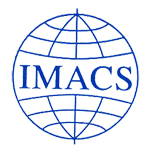
Project 13-08-06040
INFORMATION
SPONSORS

RUSSIA SIBERIA
SECTION

Wencai Wang, Yoram Koren
"Design Principles of Scalable Reconfigurable Manufacturing Systems"
Abstract: This paper explains the importance of cost-effective volume scalability of existing manufacturing systems, which enables enterprises to meet market demand in a timely manner. The system must be designed at the outset for future scalability in order to enable its rapid and cost-effective volume expansion, exactly when needed. Accordingly, this paper offers a set of principles to guide manufacturing systems design for scalability, and presents several examples.
Bahman Rostami Tabar, Mohamed Zied Babai, Aris Syntetos, Yves Ducq
"The Impact of Temporal Aggregation on Demand Forecasting of ARMA(1, 1) Process: Theoretical Analysis"
Abstract: Demand forecasting performance will be challenged by demand dispersion underlying the time series related to the Stock Keeping Units (SKUs). Among the strategies that may be used to reduce the demand dispersion, an intuitively appealing approach is to aggregate demand in lower-frequency 'time buckets'. This paper focuses on the impact of non-overlapping temporal aggregation on the performance of demand forecasting by investigating the mean square error (MSE) before and after aggregation. We assume that the non-aggregated demand follows a first-order autoregressive moving average process [ARMA(1,1)] and a Single Exponential Smoothing (SES) procedure is used to estimate the level of demand. The theoretical analysis shows that the temporal aggregation approach has a great potential to improve the forecasting accuracy. The improvement is a function of process parameters, the aggregation level, and the smoothing constant values. We present some insights into the impact of different control parameters on the performance of each approach. The paper concludes with an agenda for further research in this area.
Chuan Shi, Stanley Gershwin
"The Additive Property in Long Line Optimization"
Abstract: In this paper, we study an additive property in long line optimization. The property is that the effect of a set of local bottlenecks on the optimal buffer distribution (in which profit is maximized subject to a production rate constraint) is approximately the same as the sum of the effects of each local bottleneck by itself. A similar property is observed with a mixture of bottlenecks and anti-bottlenecks. Both heuristic explanations and numerical experiments are provided to demonstrate the property. Finally, some limitations about the additive property are also examined.
Karol Ondrejkovič, Pavol Bucek, Pavol Noga, Lukáš Tkáč, Gabriel Hulkó
"Modeling and Control of Temperature Field of the Secondary Cooling Zone in Continuous Casting of Steel As Distributed Parameter System"
Abstract: This paper presents some results on modeling and control of temperature field in a steel continuous casting, demonstrating the possibilities of using engineering methods for control of distributed parameter systems along with virtual engineering environments. A system to be controlled is considered as lumped-input and distributed-parameter-output system. Dynamics and control synthesis are decomposed into time and space components, respectively. Demonstrations of PID and adaptive model-based predictive control are being presented via cosimulation, utilizing virtual software environments for continuous casting simulation and distributed parameter control systems, respectively.
Semyon M. Meerkov, Chao-Bo Yan
"Production Lead Time Problem: Formulation and Solution for Bernoulli Serial Lines"
Abstract: This paper is intended to formulate the so-called production lead time problem, which is the problem of throughput optimization under a constraint on production lead time. A solution is provided for serial lines with Bernoulli machines and infinite buffers. Specifically, analytical formulas are derived for raw material release rates, which guarantee the desired lead time, while maximizing the throughput. Based on this solution, a method for selecting design parameters of kanban- and CONWIP-controlled systems, which ensure the desired lead time, is provided.
Subhash Sarin, Ming Cheng
"Two-Stage, Multiple-Lot, Lot Streaming Problem for a 1 + 2 Hybrid Flow Shop"
Abstract: In this paper, we address a multiple-lot lot streaming problem for a two-stage hybrid flow shop, which consists of one machine at Stage 1 and two parallel (identical) machines at Stage 2. Each item of a lot requires for its processing only one of the machines at Stage 2 after its processing at Stage 1. A lot can be split into sublots where the items in a sublot are processed together. The problem is to determine an optimal sequence in which to process the lots, number of sublots for each lot, sublot sizes, and the allocation of sublots to the machines at the second stage so as to minimize two objectives: makespan, and the sum of the completion times of all the lots. We exploit some basic results derived for the single-lot problem in order to develop mathematical programming-based heuristic methods for the solution of both problem instances. Our computational investigation reveals the efficacy of these methods.
Alexander V. Nazin, Boris Miller
"Robust Mirror Decent Algorithm for a Multi-Armed Bandit Governed by a Stationary Finite Markov Chain"
Abstract: This paper develops adaptive approach to the controlling observable Markov chains with a finite number of states. We apply Robust Mirror Descent Randomized Control Algorithm (RMDRCA) to a class of homogeneous finite Markov chains governed by the multi-armed bandit with unknown mean losses. As opposed to the partially observable Markov decision process an adaptive approach does not presuppose the knowledge of probabilistic characteristics of random perturbations and permits to obtain the control strategy with known rate of convergence to the optimal solution. We propose the concrete RMDRCA and prove the explicit, non-asymptotic upper bound for the mean losses at any current time.
Francisco Serdio, Edwin Lughofer, Thomas Buchegger, Kurt Pichler, Hajrudin Efendic
"Condition Monitoring at Rolling Mills with Data-Driven Residual-Based Fault Detection"
Abstract: We propose a residual-based approach for fault detection in rolling mills which is based on data-driven soft computing techniques. The basic idea is to transform original measurement signals into a feature space by (i) identifying multi-dimensional relationships in the system, (ii) representing the nominal fault-free case, and (iii) analyzing residuals with incremental/decremental statistical techniques. Model identification and fault detection are conducted in a completely unsupervised manner, that is, solely based on the data streams recorded online. Thus, neither annotated samples nor fault patterns/models, which are often very time-intensive and costly to obtain, must be available a priori. We use purely linear models, a new genetic variant of Box-Cox models (termed Genetic Box-Cox) that consider weak non-linearities, and Takagi-Sugeno fuzzy models, which are able to express more complex non-linearities, trained with an extended version of SparseFIS. Using three typical scenarios from rolling mill production, we compare our method to state-of-the-art approaches that are based on principal components analysis and multi scale principal components analysis. The results show that our method outperforms these state-of-the-art approaches.
Joel Sauza Bedolla, Francesco Ricci, Javier Mauricio Martinez Gomez, Paolo Chiabert
"Fostering PLM Implementation in SMEs: Modelling and Managing Verification Processes"
Abstract: PLM is largely recognized as the most effective business strategy by all those companies committed to deliver complex and continuously-evolving products, particularly if these operate at a multinational level. However, only a small number of these companies, the larger ones, has reached the level of maturity necessary to implement it in an effective manner. SMEs are not usually amongst these. This paper proposes a user-friendly Visualization Model (VM), that can guide the implementation of PLM philosophy in whatever scale company, provided its processes have been standardized. The model has been tested with major and smaller companies operating in the field of precision manufacturing showing encouraging results. However, as SMEs would get the greatest benefits, it is presented, in this paper, by means of a case study involving a small metrology company. A further content of novelty here, is represented by the fact that the case study’s company is using this method to start operating according to the new ISO Geometrical Product Specification and Verification (GPS) standards.
Feng Ju, Jingshan Li, Guoxian Xiao, Jorge Arinez
"Modeling Quality Propagation in Automotive Paint Shops: An Application Study"
Abstract: Improving paint quality is of significant importance for vehicle manufacturing. In this paper, a quality propagation model is presented to analyze and improve quality in automotive paint shops. Specifically, we study the vehicle painting process with multiple inspection stations. After each inspection, vehicles failed to achieve quality requirement will be repaired before sending to the next operation. In such systems, the quality variations may propagate along the painting process. To study it, a three-state quality propagation model has been developed, and analytical formulas to evaluate product quality have been derived. In addition, to improve quality performance, a bottleneck analysis method has been introduced to identify the most critical stage that impedes product quality in the strongest manner so that its improvement will lead to the largest improvement of the whole system. To illustrate the applicability of the method, a case study to improve paint quality at an automotive paint shop is introduced.
INDUSTRIAL PAPER PRIZE
Vitaly Promyslov, Alexey Poletikin
"Formal Hierarchical Model of Security of the Upper Level of Instrumentation & Control System of a Nuclear Power Plant"
Abstract: The present paper considers a formal hierarchical model of the cybersecurity policy of the digital upper unit level system of (UULS) of the nuclear power plant (NPP). The relations and transfer of the access rights between the subjects and objects of the model are analyzed. The standard NPP UULS is characterized by way of example of the UULS developed at the Trapeznikov Institute of Control Sciences (Russian Academy of Sciences) for the NPP's and of its simplified cybersecurity model.
BEST STUDENT PAPER PRIZES
Georg Heinecke, Steffen Lamparter, Raffaello Lepratti, Andreas Kunz
"Advanced Supply Chain Information for Rule-Based Sequence Adaptions on a Mixed-Model Assembly Line with Unreliable Just-In-Sequence Deliveries"
Abstract: The proliferation of just-in-sequence (JIS) deliveries has raised the vulnerability of assemblies to costly production stoppages or rework due to missing components. Through a comprehensive real-time supply chain monitoring systems these supply issues can be detected early and affected orders removed from planned assembly sequences in time to avoid production disturbances. Using simulation analysis, this paper explores the impact of unreliable JIS deliveries and the mitigation potential of transparent supply chains that allow a rule-based order resequencing on a mixed-model assembly line. The results indicate that (i) rework due to unreliable JIS deliveries can be eliminated and (ii) the trade-off between schedule nervousness and optimality can be balanced, making the proposed rule a feasible approach.
Alexander Dorofeyuk, Julia Dorofeyuk, Irina Pokrovskaya
"The Expert-Analytical Forecasting Model in the Problem of Railway Track Facilities Control"
Abstract: In the paper the application of intellectual data analysis methods for industrial plant control systems efficiency estimation and modeling is considered. To solve this problem the expert-classification and expert-statistical analysis is used. For the prediction model development, the structural forecasting method is used. Developed methods were applied for railway track condition analysis, modeling and forecasting in the framework of OJSC ''Russian Railways'' track facilities analysis problem.
  |